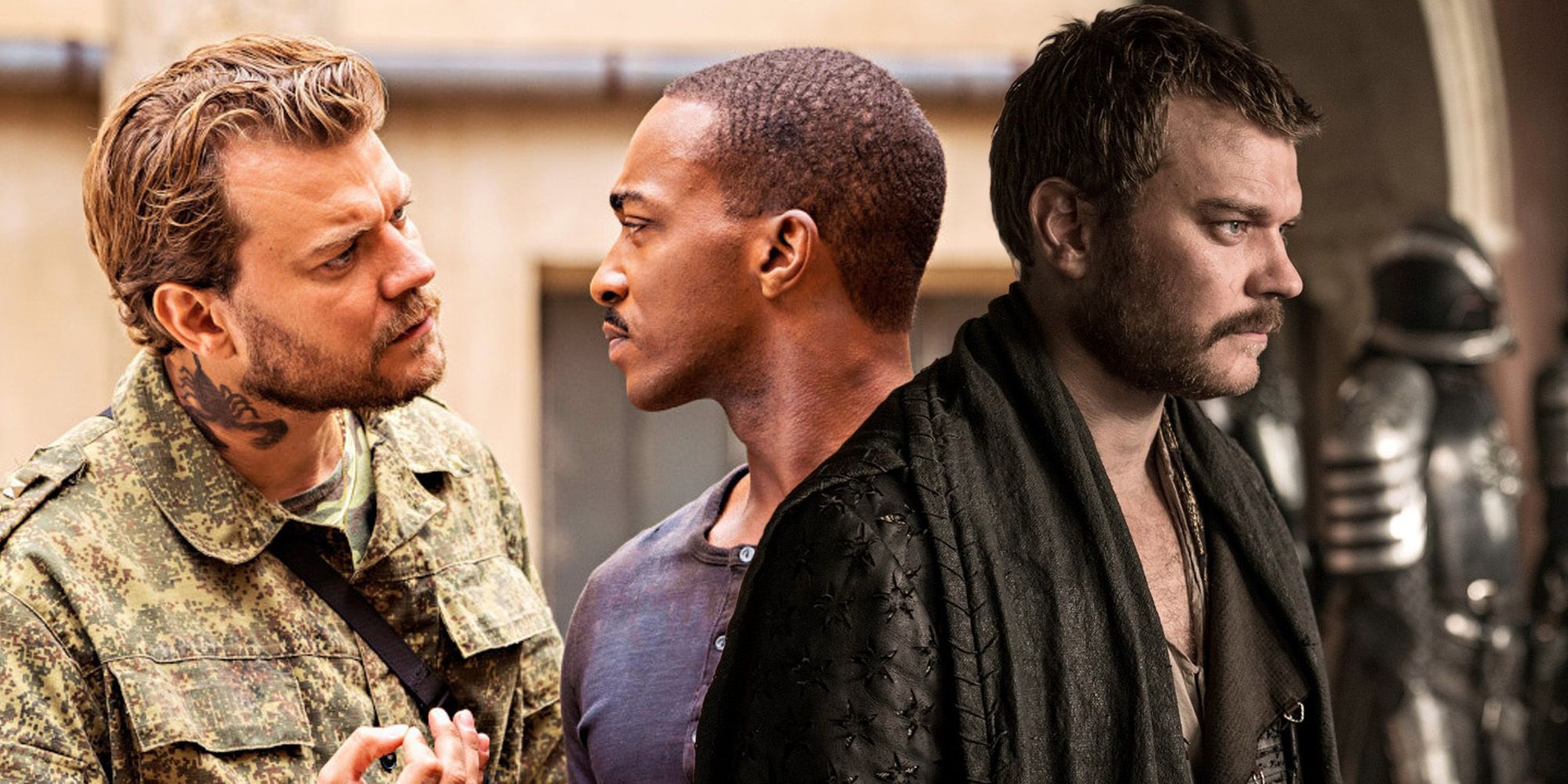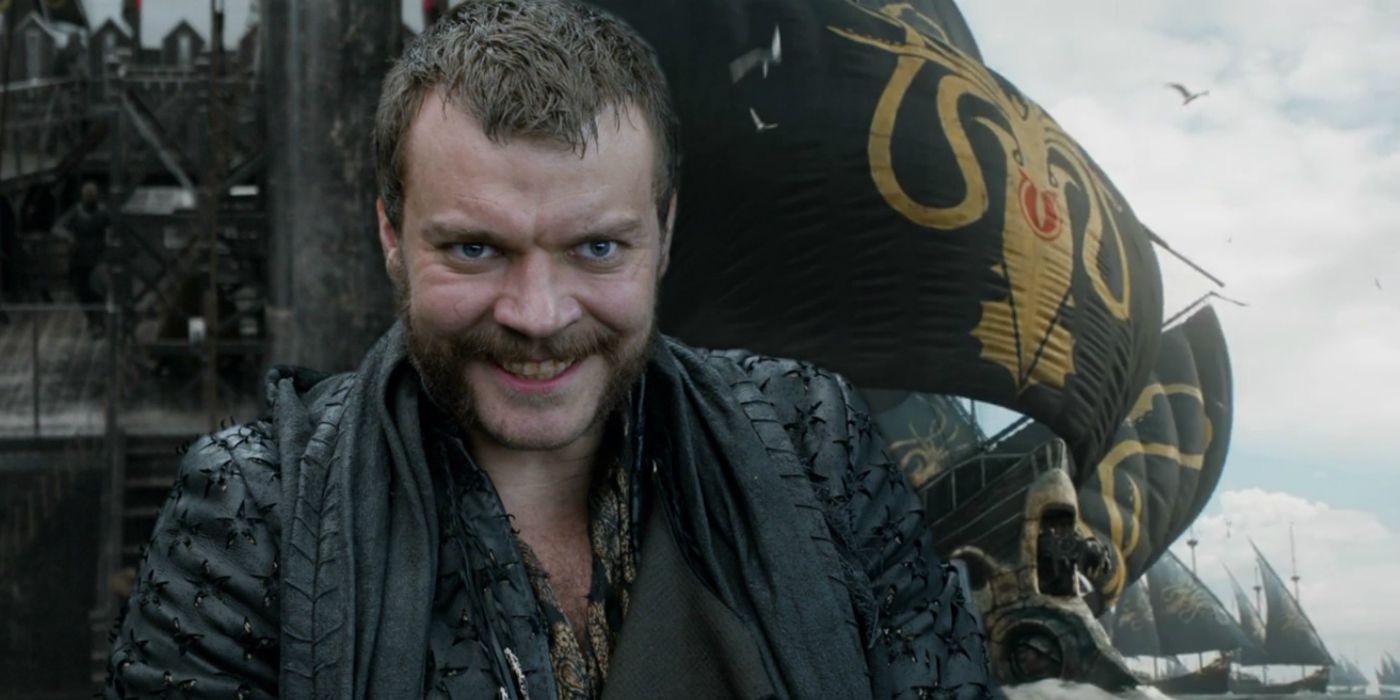Warning: Spoilers ahead for Netflix's Outside the Wire.
Netflix has released its newest original action film with Outside the Wire, which makes a similar mistake with its main villain as Game of Thrones did in its later seasons. Both Outside the Wire and Game of Thrones feature Danish star Pilou Asbæk as a key antagonist – deadly pirate Euron Greyjoy in the latter and feared warlord Victor Koval in the former. Unfortunately, both of Asbæk’s characters fall victim to the same problem.
The majority of Outside the Wire is spent searching for Victor Koval, the shadowy leader of a Russian-backed terrorist cell sowing discord and chaos in Ukraine. At the beginning of the movie, Koval is said to be searching for secret nuclear weapons to launch an attack on the U.S. He’s shown only partially in photographs and spoken of in whispers, and Leo and Harp’s entire mission outside the wire is (ostensibly) to find and neutralize him before he gains access to the nukes.
Unfortunately, Outside the Wire’s third act twists undo most of the buildup dedicated to Koval in the earlier parts of the film. He ends up appearing in just one brief scene, where he does a maniacal laugh, briefly philosophizes about war and technology, and then is promptly killed by Leo who, as it turns out, is actually trying to acquire the nukes himself. Koval’s whole purpose in the movie ends up being nothing more than red herring, distracting from a Leo heel-turn twist that doesn’t even land that well.
Of course, Outside the Wire isn’t the only villainous role Pilou Asbæk that’s been cut short of its potential. Euron Greyjoy was famously underused and relegated to a side role in the later seasons of Game of Thrones, a change that’s been repeatedly criticized by fans of the books. In both cases, the villain is meant to install awe and fear simply through his presence and what other characters say about him. And in both cases, that aura is effectively destroyed when the villain ends up having a tiny role and little compelling development or motivation to speak of.
This isn’t necessarily a new phenomenon with the mysterious antagonist archetype, but it’s thrown into sharp relief by Euron and Koval’s shared actor. Seeing Asbæk, a star with a lot of onscreen talent and a powerful physical presence, be repeatedly relegated to the side in what could have been much stronger roles is a frustrating underuse of his skills. Hopefully, future studios can view Game of Thrones and Outside the Wire as reminders that it’s not enough to tell the audience a villain should be feared – it has to be proved with meaningful development and strong writing.


